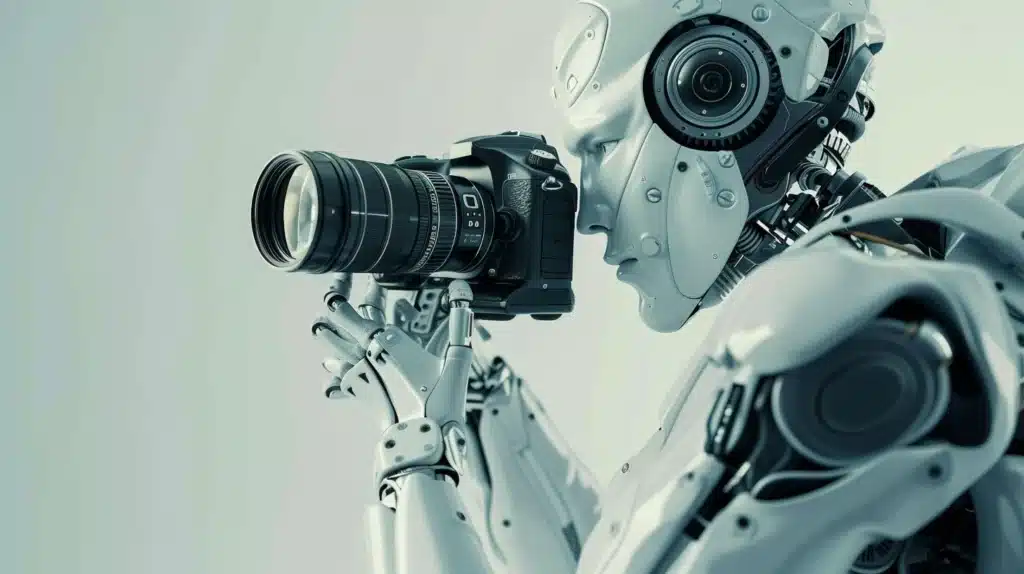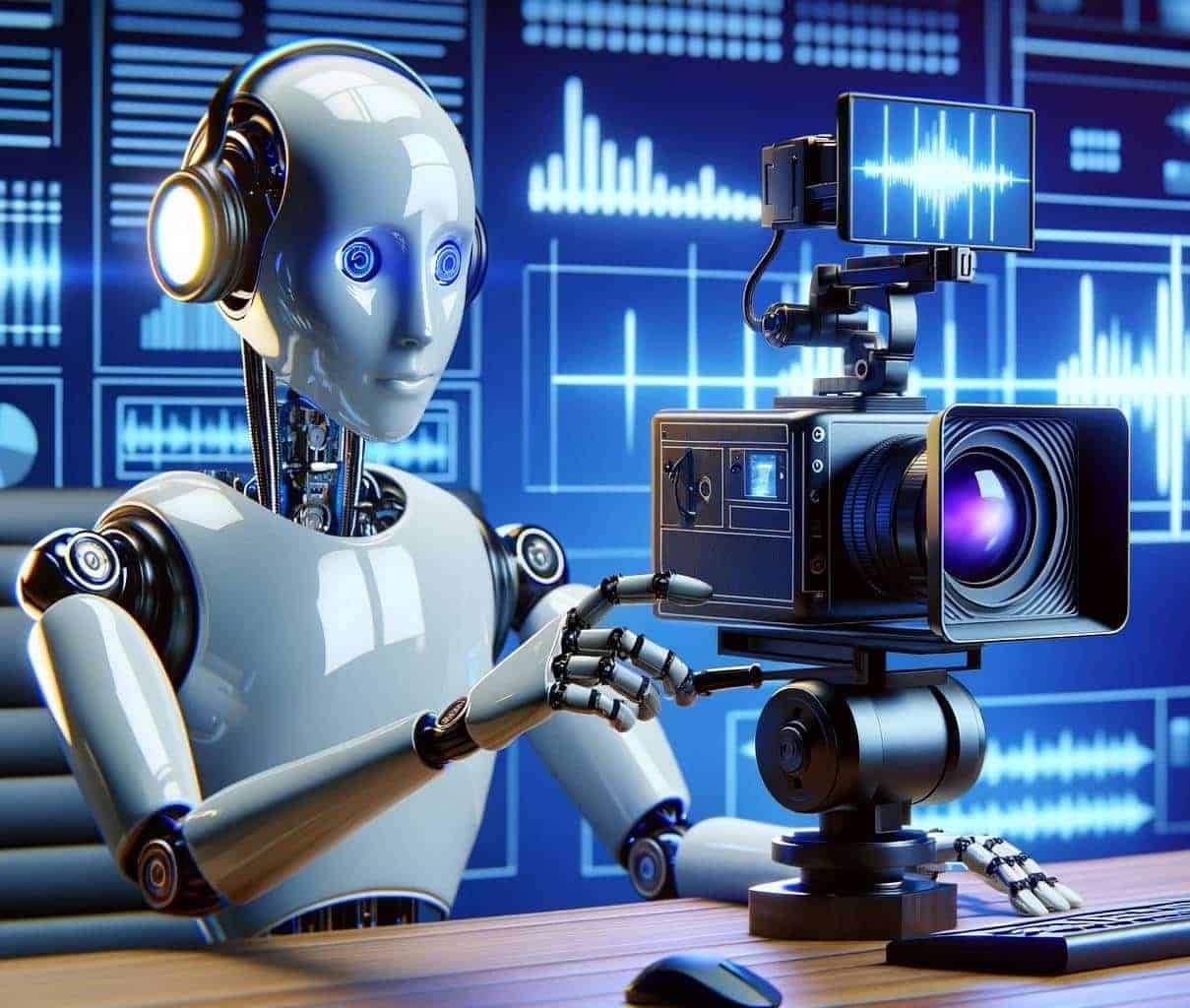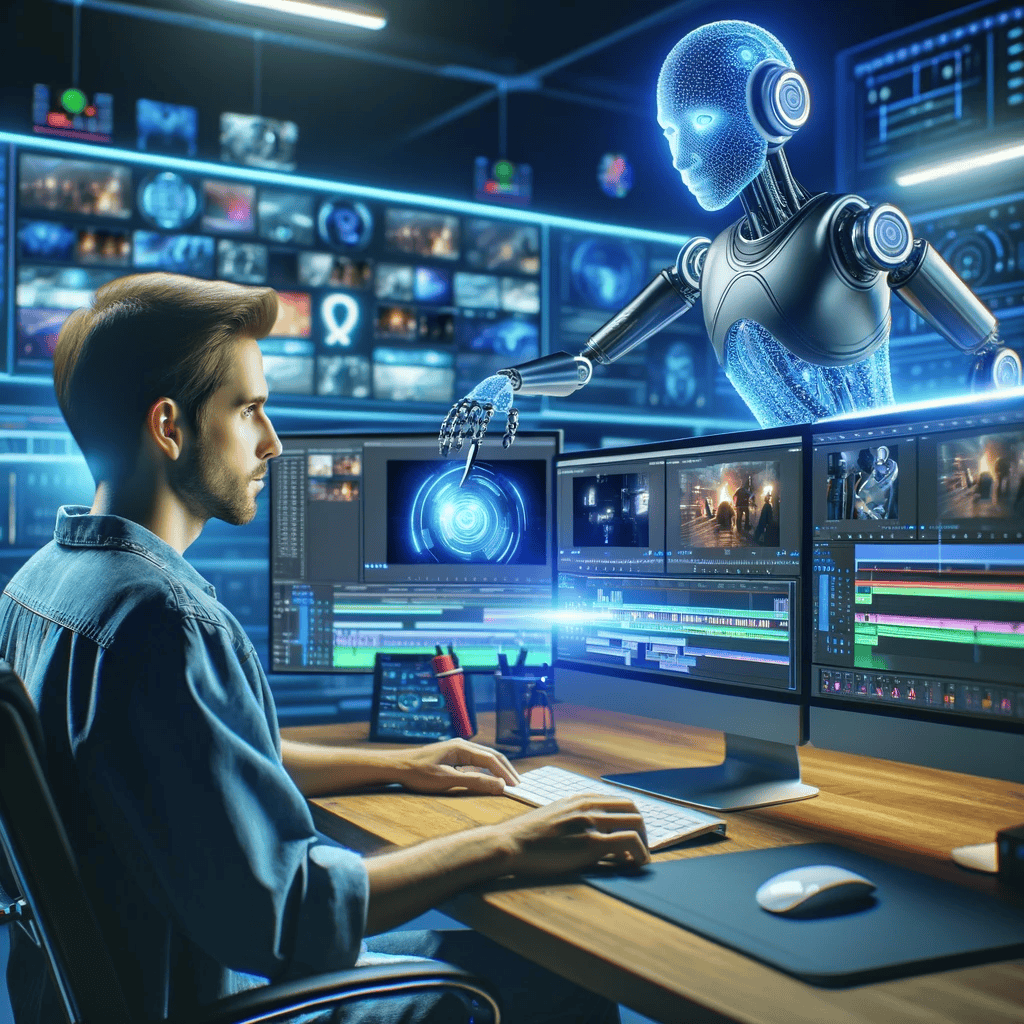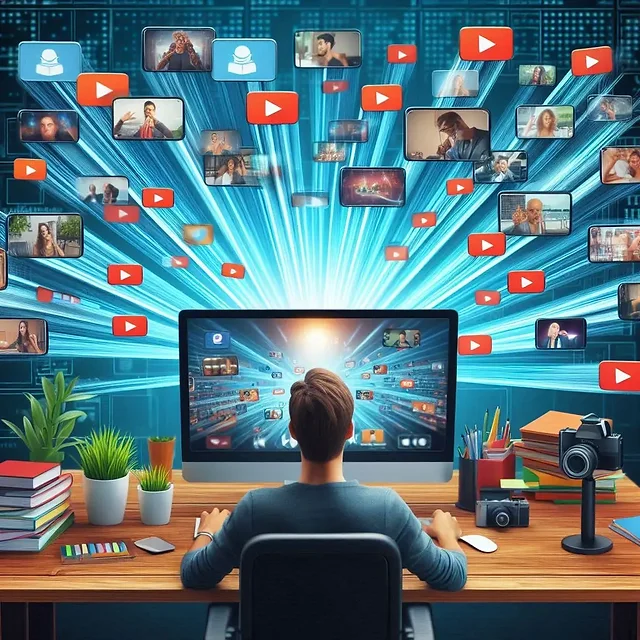The film industry is on the verge of a technological revolution, and AI is the director. From pre-production planning to post-production polish, artificial intelligence is weaving its way into every aspect of filmmaking. But is this a collaboration or a hostile takeover? Will robots replace human creatives or simply become powerful tools in their arsenal? Get ready for a sneak peek into the future of filmmaking, where the line between reality and CGI becomes blurrier than ever before.
Scripting the Future: AI’s Unexpected Muse
Imagine a world where algorithms analyze thousands of successful scripts, predicting audience trends and crafting stories that resonate with viewers on a deeper level. That’s the power of AI in scriptwriting. These intelligent systems can help screenwriters refine their narratives, identify potential plot holes, and even suggest improvements to dialogue.
The Rise of the Robot Writer?
AI-powered scriptwriting software isn’t about replacing human creativity; it’s about augmenting it. Think of it as a digital brainstorming partner, capable of generating fresh ideas and pushing the boundaries of storytelling. While AI might not be writing the next Oscar-winning screenplay just yet, it’s quickly becoming an indispensable tool for screenwriters looking to tap into the power of data-driven insights.

Casting Call: AI’s Eye for Talent
Casting directors spend countless hours sifting through headshots and audition tapes, searching for the perfect actor to embody a character. But what if AI could streamline this process? AI algorithms can analyze an actor’s past performances, their physical attributes, and even their social media presence to determine their suitability for a role. This not only saves time but also helps producers discover hidden gems they might have otherwise overlooked.
A World Without Casting Calls?
AI’s role in casting isn’t about replacing human judgment; it’s about providing valuable data points that can inform casting decisions. Ultimately, the final decision still rests with the filmmakers, who can use AI insights to ensure they assemble the perfect cast for their vision.
Lights, Camera, AI Action! The Production Revolution
AI is transforming the way films are shot, edited, and brought to life. Automated camera systems can capture stunning footage with precision and consistency, eliminating the risk of human error. These intelligent systems can track subjects, adjust focus, and even operate in challenging environments, freeing up human camera operators to focus on creative tasks.
Editing on Autopilot: The AI Advantage
In the editing room, AI is proving to be a game-changer. AI-powered software can analyze hours of raw footage, identifying key scenes, categorizing shots, and even suggesting optimal cuts and transitions. This significantly reduces the time and effort required for editing, allowing editors to focus on the creative aspects of storytelling.
Post-Production Magic: AI’s Special Effects Wizardry
The world of visual effects and computer graphics is undergoing an AI-powered makeover. AI algorithms can create realistic CGI characters, enhance special effects, and even generate entire 3D environments. This allows filmmakers to bring their wildest imaginations to life, pushing the boundaries of visual storytelling.
Sounding Off: AI’s Sonic Symphony
AI isn’t just changing the way films look; it’s also transforming the way they sound. AI algorithms can analyze scenes and suggest appropriate sound effects, saving sound designers hours of manual effort. They can also suppress unwanted noise, enhance speech clarity, and even generate realistic 3D soundscapes.
Show Me the Money: AI’s Cost-Cutting Prowess
One of the biggest advantages of AI in filmmaking is its potential to reduce production costs. By automating tasks traditionally performed by humans, AI can help filmmakers stretch their budgets further. This means lower personnel costs, reduced production time, and minimized post-production expenses.
Democratizing Filmmaking: AI’s Leveling Effect
AI is not just a tool for big-budget Hollywood productions; it’s also making filmmaking more accessible to independent creators. By reducing the need for expensive equipment and large crews, AI empowers aspiring filmmakers to bring their stories to life without breaking the bank.

The Ethical Enigma: AI’s Shadow Side
While AI offers a dazzling array of benefits, it also raises important ethical considerations. Concerns about privacy, bias in algorithms, and the potential for manipulation are at the forefront of the discussion.
Privacy in the Spotlight: AI’s Data Dilemma
AI’s ability to analyze vast amounts of data raises questions about personal privacy. Filmmakers must be mindful of how they collect and use data, ensuring they respect audience privacy and comply with relevant regulations.
Bias in the Machine: AI’s Inherited Prejudices
AI algorithms are trained on existing data, which may contain inherent biases. This means AI-generated content could inadvertently perpetuate harmful stereotypes if filmmakers aren’t vigilant in identifying and mitigating these biases.
The Deepfake Deception: AI’s Reality-Bending Power
Deepfake technology, powered by AI, allows for the creation of incredibly realistic but entirely fabricated videos. This raises concerns about authenticity and the potential for manipulation, as deepfakes could be used to spread misinformation or damage reputations.
Job Jitters: Will AI Steal the Show?
The rise of AI in filmmaking has sparked fears about job displacement. As AI takes over tasks traditionally performed by humans, some industry professionals worry about their future.
Reshaping the Workforce: AI’s Collaborative Potential
Rather than viewing AI as a threat, it’s important to consider how humans and AI can work together. By embracing AI tools and adapting their skillsets, filmmakers can leverage AI’s strengths while retaining their own creative control.
The Future of Film: AI’s Director’s Cut
The future of filmmaking is a collaborative tapestry woven with the threads of human creativity and AI innovation. AI is not here to replace human filmmakers; it’s here to empower them, to push the boundaries of what’s possible, and to create experiences that captivate audiences like never before.
Embracing the AI Evolution: A New Era of Storytelling
As AI technology continues to evolve, its impact on filmmaking will only grow more profound. Filmmakers who embrace this evolution, who learn to harness AI’s power while retaining their own artistic vision, will be the ones shaping the future of cinema.

Conclusion
The rise of AI in filmmaking is an exciting and inevitable evolution. By embracing AI’s potential while addressing its challenges, we can usher in a new era of cinematic storytelling, one that is both innovative and deeply human. The future of film is a canvas waiting to be painted, and AI is one of the most vibrant colors on the palette.
FAQs
What are the main ways AI is changing filmmaking? AI is impacting filmmaking in numerous ways, including:
- Script analysis and development: AI can analyze scripts to identify potential issues, improve dialogue, and predict audience reception.
- Casting: AI can help identify actors who are best suited for particular roles.
- Production: AI-powered camera systems can automate camera movements and capture footage with greater precision.
- Post-production: AI can streamline editing, enhance visual effects, and create realistic CGI characters and environments.
- Sound design: AI can analyze scenes and suggest appropriate sound effects, as well as enhance audio quality.
Will AI replace human filmmakers? While AI can automate certain tasks, it is unlikely to completely replace human filmmakers. AI is a tool that can enhance creativity and efficiency, but it still requires human guidance and artistic vision. The future of filmmaking is likely to involve collaboration between humans and AI.
What are the ethical concerns surrounding AI in filmmaking? Ethical considerations related to AI in filmmaking include:
- Privacy: AI’s ability to analyze data raises concerns about the protection of personal information.
- Bias: AI algorithms can perpetuate existing biases present in the data they are trained on.
- Manipulation: Deepfake technology can create realistic but fabricated videos, raising concerns about authenticity and the potential for misuse.

